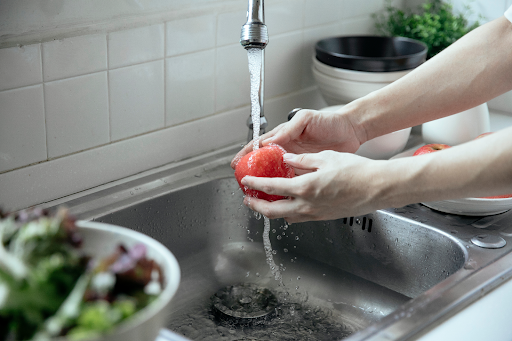Clogged drains can disrupt the tranquility of a household. They’re a common headache that many homeowners face, often leading to a gloomy series of plunges and chemical treatments — not to mention the cost when a professional needs to be called in. To save your time, money, and peace of mind, it’s crucial to understand the top causes behind these pesky blockages. With some preventative knowledge, you can potentially avoid a clogged drain repair in the first place or at least know how to deal with them effectively when they occur.
Hair
Hair is the number one culprit when it comes to clogged drains. It’s common in bathrooms and showers, where hair naturally falls out during washing. Over time, this hair can accumulate in the drain and combine with other substances like soap scum, leading to a stubborn blockage that can be challenging to remove.
To prevent this, consider installing a hair catcher or drain cover to collect the hair before it goes down the drain. Regularly cleaning these accessories will also help prevent buildup.
Food Waste
Food waste is often the main cause of clogged drains in the kitchen. This can be anything from small bits of food that accidentally go down the sink while washing dishes to grease and oil that solidify and create a blockage.
To prevent this, always scrape food scraps into the trash before rinsing dishes in the sink. Grease and oil should also be disposed of properly by allowing them to cool and solidify before throwing them away.
Foreign Objects
Children are notorious for flushing toys, small objects, and even household items down the toilet, leading to clogged pipes. This is also a common cause of clogged drains in bathrooms and sinks when items like cotton swabs, dental floss, and feminine hygiene products are flushed or accidentally dropped down the drain.
To prevent this, keep an eye on what goes down your drains and educate children about proper disposal methods for these items.
Tree Roots
While it may not be as common, tree roots can cause clogged drains. As trees grow, their roots can extend and infiltrate underground pipes, causing blockages and breakages.
To prevent this, regularly inspect your property for signs of tree root intrusion and consider planting trees away from plumbing lines.
Aging Pipes
As pipes age, they can become damaged and corroded, leading to clogs and other plumbing issues. This is especially common in older homes with outdated plumbing systems.
To prevent this, it’s important to regularly maintain your pipes by getting them inspected and serviced by a professional plumber. Replacing old pipes may also be necessary if they are beyond repair.
By understanding these common causes of clogged drains, you can take proactive measures to prevent them from occurring in your home. However, if a clog does happen, it’s best to address it immediately before it worsens, leading to more significant plumbing problems. Always be cautious when removing a clog, and call a professional if the issue persists.

